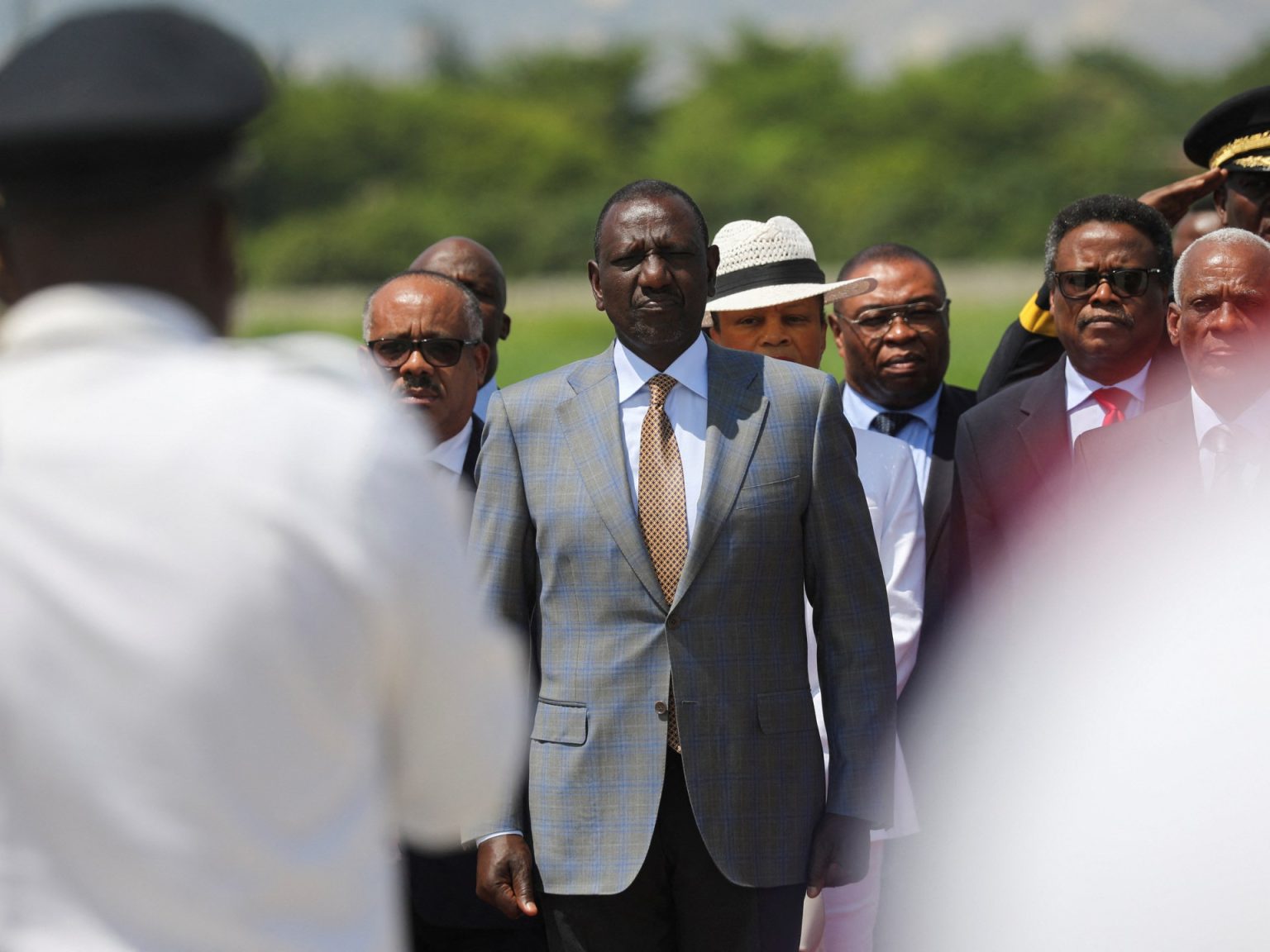Kenyan President William Ruto recently visited Haiti to assess a Kenya-led security mission in the Caribbean nation, amidst growing concerns about violence and insecurity. The Kenyan contingent is working alongside their Haitian counterparts to address a surge in gang violence that has plagued Haiti for years. These armed groups, often linked to political and business leaders, have been vying for control of territory in Port-au-Prince, leading to a dire humanitarian crisis and widespread displacement of Haitian citizens.
Despite the presence of foreign police officers, including Kenyan forces, insecurity in Haiti remains rampant, with armed groups still believed to control a significant portion of the capital city. More than half a million Haitians have been internally displaced due to the violence, living in squalid conditions as they wait to return home safely. The situation has prompted concerns from UN human rights experts, who warn of a worsening crisis if urgent action is not taken. The Multinational Security Support Mission (MSS) in Haiti, which has been tasked with addressing the violence, has yet to deploy its full force, with insufficient resources and logistical support.
As the mandate for the UN-backed mission in Haiti is set to expire, the United States, a key supporter of the deployment, is working to secure additional funding and personnel to bolster the force. US Secretary of State Antony Blinken has expressed a commitment to addressing Haiti’s security, economic, and humanitarian needs, as well as renewing the mission’s mandate. There have been discussions about the possibility of transitioning the mission into a UN peacekeeping operation in coordination with other partners, with the aim of creating conditions conducive to free and fair elections in Haiti.
Despite concerns about past UN interventions in Haiti, many civil society groups in the country acknowledge the need for international support to stem the violence. They emphasize that a security deployment alone is not enough to address the systemic issues facing Haiti and advocate for safeguards to prevent possible abuses by the international police force. The Haitian population remains wary of UN interventions, citing past instances of harm caused by peacekeeping missions. However, with the current security situation in Haiti worsening, there is recognition of the need for external assistance to bring stability to the country.
President Ruto’s visit to Haiti highlights the importance of international cooperation in addressing security challenges in the region. The collaboration between Kenyan and Haitian forces is part of a broader effort to combat gang violence and restore peace in Haiti. Moving forward, it will be crucial for the UN-backed mission to receive the necessary support and resources to effectively carry out its mandate. With the instability and insecurity in Haiti showing no signs of abating, the international community must work together to provide sustainable solutions that prioritize the safety and well-being of the Haitian population.













